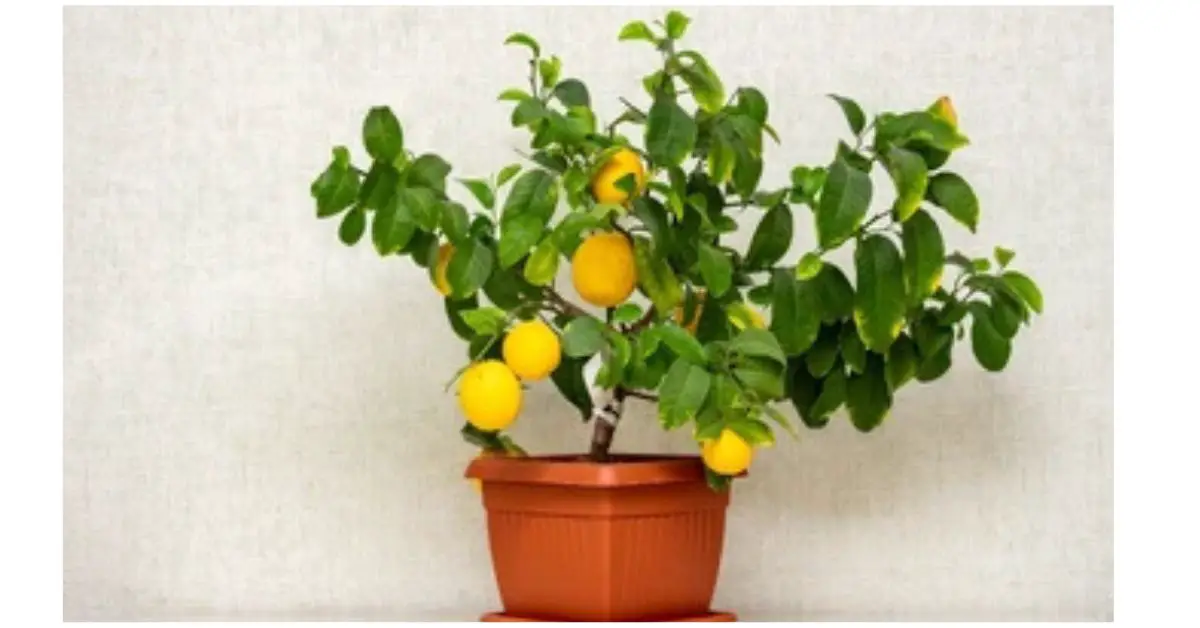How to Grow and Take Care of a Lemon Plant Indoors: 7 Tips for Thriving Citrus at Home
There is nothing more refreshing than the sight of greenery and a hint of Mediterranean charm, bringing such freshness into any indoor space. Well, plucking lemons fresh from your living room is not a dream anymore! With proper care and attention, anyone with a passion for gardening, be it a seasoned gardener or a complete beginner, can unlock all the secrets to helping a healthy indoor citrus grow on.

7 Essential Tips to Grow a Thriving Lemon Plant Indoors
Table of Contents
Here’s everything you need to know to grow a bright and healthy-looking lemon plant indoors:
1. Choose the Right Variety
Not all lemon trees are alike in indoor gardening. Opt for dwarf varieties, such as the Meyer Lemon or Ponderosa Lemon. These smaller plants are easier to manage and tolerate indoor conditions.
I started with a Meyer lemon plant because of its sweeter fruit and compact size—it’s perfect for small apartments!
2. Provide Plenty of Light
Lemon plants crave sunlight. Aim to place your plant in a spot where it gets 8-12 hours of bright, indirect sunlight daily. A south-facing window is ideal. If natural light is limited, consider supplementing with a grow light.
Real-Life Example:
In the winter months, I have an LED grow light. This makes a big difference in leaf health.
3. Get familiar with the Watering Routine
The lemon plant likes consistent moisture but hates overwatering. Make sure that the top 2 inches of soil dries out before next watering. Ensure the pot has drainage holes to avoid rotting roots.
Fast Test:
Stick your finger into the soil. If it feels dry up to your second knuckle, it’s time to water!
4. Select the right soil
A citrus plant prefers a well-draining and nutrient-rich soil. It is best to use a citrus-specific potting mix or a mix blended with perlite for improved drainage.
DIY Soil Tip:
Mix regular potting soil with sand and perlite to make a straightforward homemade mix.
5. Control Humidity Levels
Lemon plants love humidity, ideally at 50-60%. If your home is dry, consider these tricks:
Mist the leaves regularly
Use a pebble tray filled with water
Invest in a small humidifier
Personal Experience:
My plant had its leaves turning brown at the edges. Adding a humidifier made a noticeable improvement!
6. Fertilise Wisely
Feed your lemon plant with a citrus fertiliser every 4-6 weeks during the growing season (spring and summer). Feed less in fall and winter. Look for a fertiliser high in nitrogen and micronutrients like magnesium and zinc.
Mistake to Avoid:
Over-fertilizing can hurt the plant. Always follow package instructions!
7. Watch Out for Pests and Problems
The common pests of lemons are spider mites, aphids, and scale insects. Check the plant regularly and wipe leaves with a damp cloth. Neem oil can be applied as an organic remedy.
Troubleshooting Common Problems
Yellow leaves: May be due to overwatering or nutrient deficiency
Leaf drop: It is commonly seen due to the sudden temperature change or lack of light.
Benefits of Growing an Indoor Lemon Plant
Growing an indoor lemon plant isn’t just rewarding; it has multiple benefits:
Aesthetic Appeal Lush greenery and fresh fragrance for your home
Air Purification Purification of the indoor air
Homegrown Citrus Fresh, organic lemons for cooking or beverages
Fun Anecdote:
I recall that it was the first time the lemon plant had ever produced fruit. So, using the lemons, I made fresh lemonade. It was the best lemonade ever-beaten by any version sold in stores.
Final Thoughts: Bring the Sunshine Indoors
Nothing makes growing a lemon plant in the house more difficult than getting started. But, with these easy-to-use tips you’ll be set on your way to a flourishing citrus tree in no time. Patience and consistency are your friends.
Grow from small; care for your plant; and you’ll soon have a gorgeous, fruiting addition to your indoor garden!
Ready to Grow Your Own Indoor Lemon Plant?
Now that you have the basic information, why not bring a little citrus sunshine into your home? Happy gardening!
Choose the Right Lemon Variety
Not all lemon trees are meant to be grown indoors. Choose dwarf or semi-dwarf varieties like:
Meyer Lemon: Less acidic and tastes sweeter.
Ponderosa Lemon: Has large fruits but requires special care.
Eureka or Lisbon: Keeps true lemon flavours but requires a lot of sunshine.
Choosing the right variety will ensure your tree thrives in a contained environment, and you will benefit with the best results.
Top 7 Benefits of Growing a Lemon Plant Indoors
It’s not just aesthetic appeal when bringing a lemon plant indoors—it actually changes your home environment. And here is why having an indoor lemon plant is over just a trendy choice:
1. Natural Air Purifier
Lemon plants act as natural air filters, removing toxins and impurities from the air. The leaves absorb pollutants, releasing clean oxygen, which helps improve overall indoor air quality.
Fun Fact:
Plants like lemons are known to reduce harmful airborne chemicals like formaldehyde and benzene!
2. Aromatherapy Boost
Fresh, zesty scent of the lemon leaves and blossoms inherently freshens your indoor air. This fresh scent is not only refreshing but calming and stress-reducing, creating relaxation and a vibrant mood.
Personal Experience
I always take some time to breathe in the smell after work-it feels like a mini aromatherapy session!
3. Fresh Homegrown Citrus
One of the most rewarding benefits is having access to fresh, organic lemons. These homegrown fruits are free from pesticides and additives, perfect for cooking, baking, or refreshing drinks.
Quick Tip:
Even if your lemon plant doesn’t fruit immediately, the leaves can be used for teas or to flavour dishes.
4. Aesthetic Appeal
Lemon plants are beautiful indoor plants which bring green leaves and bright yellow fruits to decorate the room. They fit well in many styles of décor, from modern to rustic.
Decor Idea:
Place your lemon plant near a sunny window with decorative pots to enhance your living space!
5. Health Benefits from Vitamin C
Homegrown lemons are rich in vitamin C-an antioxidant that increases your immunity, gives you healthy skin, and promotes digestion. The more recently picked the lemons, the higher the nutrient content than those found in a store.
Did You Know?
A lemon provides approximately 50% of the vitamin C recommended daily intake.
6. Humidity Level Increased
The indoor environment often tends to be dry, especially during winters. Lemon plants help maintain the natural humidity by releasing moisture through a process called transpiration, which is beneficial for you and other plants.
Bonus:
Increased humidity reduces respiratory problems and improves skin conditions
7. Low Maintenance Long Life
Once established, lemon trees are relatively low maintenance. With proper care, they can live for years and so become a long-term addition to your indoor garden.
Interesting Fact:
A well-maintained indoor lemon tree can live for 50 years.
Final Words
Growing a lemon plant indoors provides many practical as well as wellness benefits. From improving the air quality and mood to delivering fresh, healthy lemons, it’s a rewarding addition to any home. Welcome the citrus bliss and brighten up your indoor space today!
You can also read our other websites blog that help you also Indoor Plant Genius& Indoor Plant Guru
You may also like
“Best Indoor Plants for Your Windows










